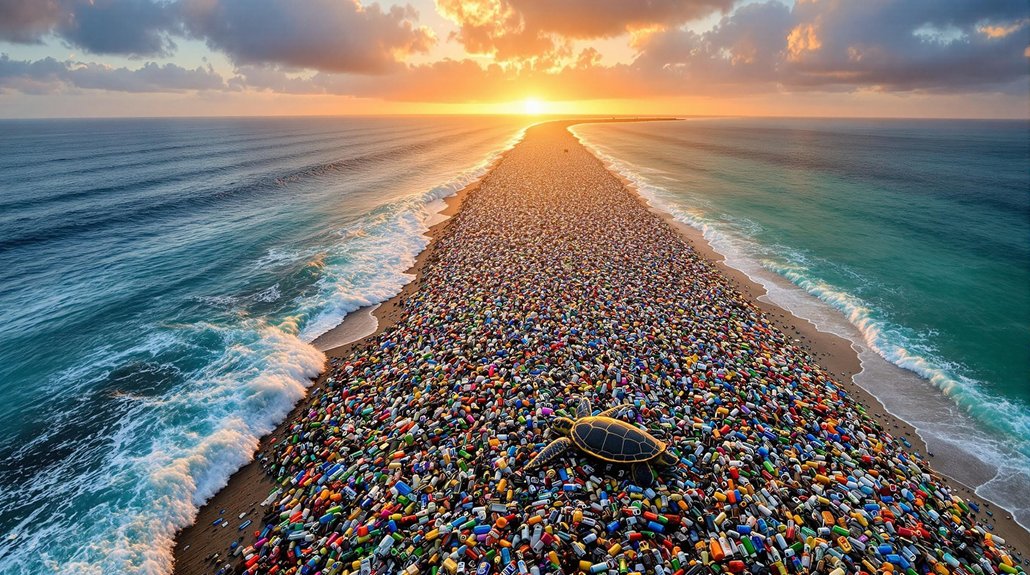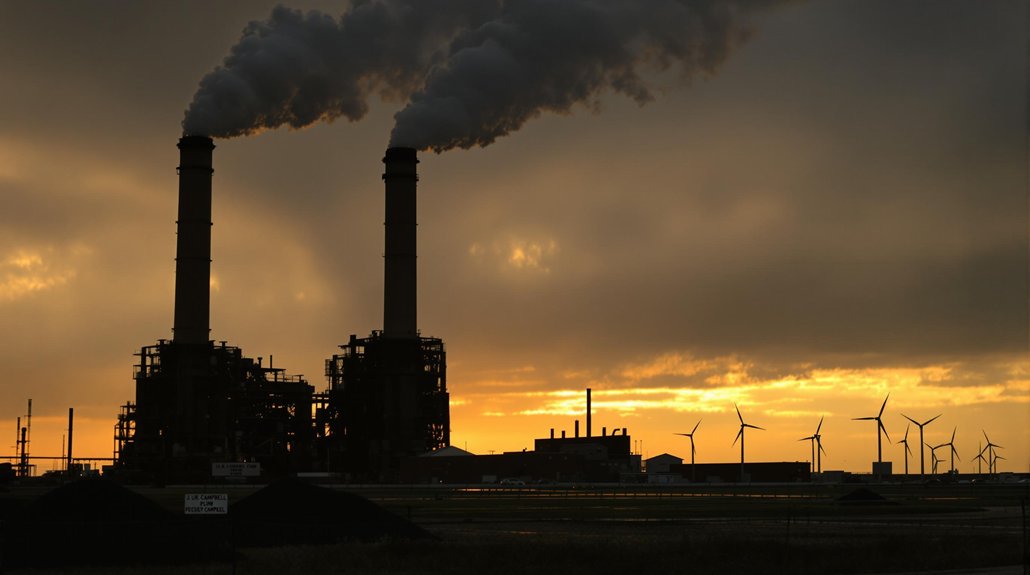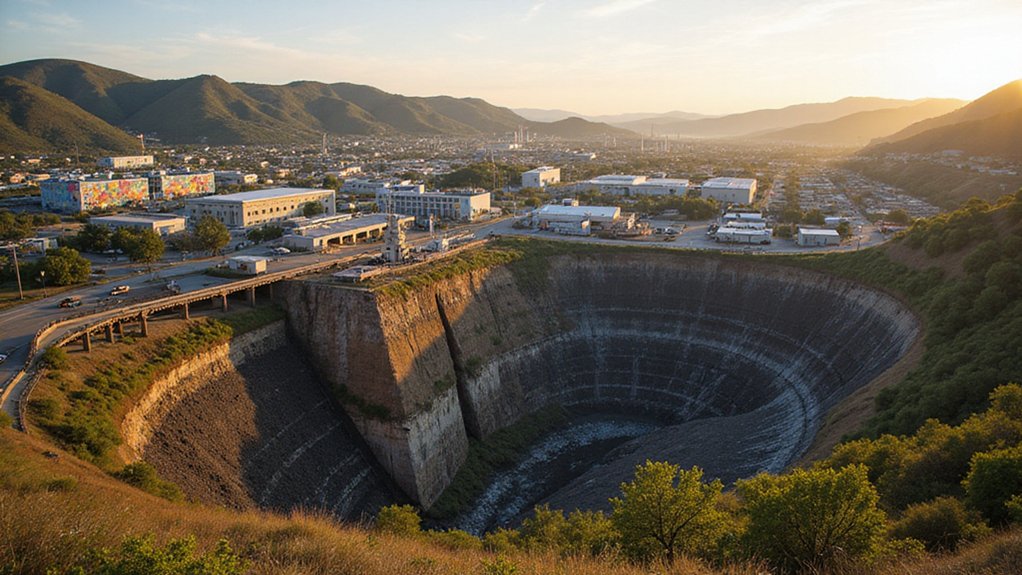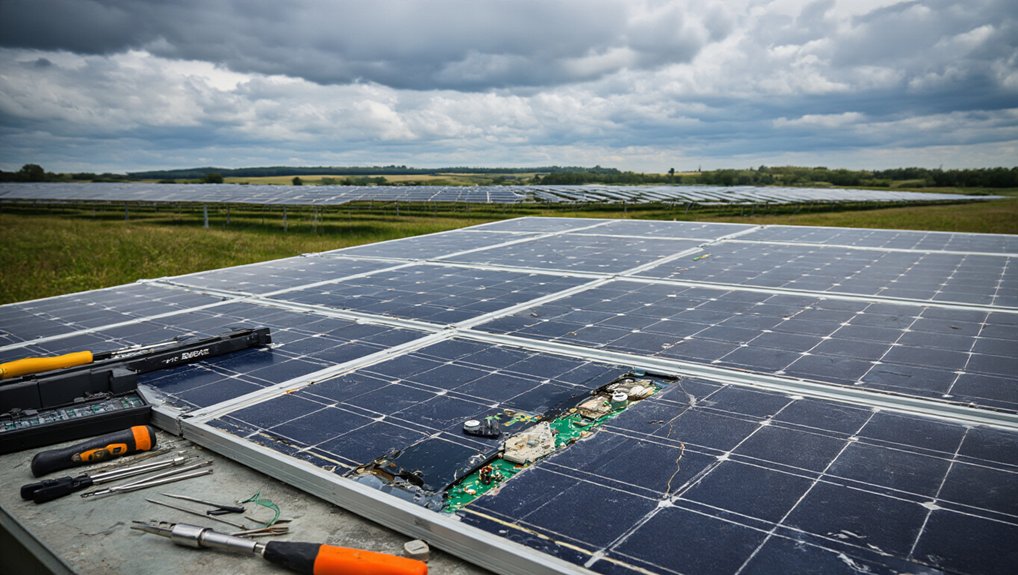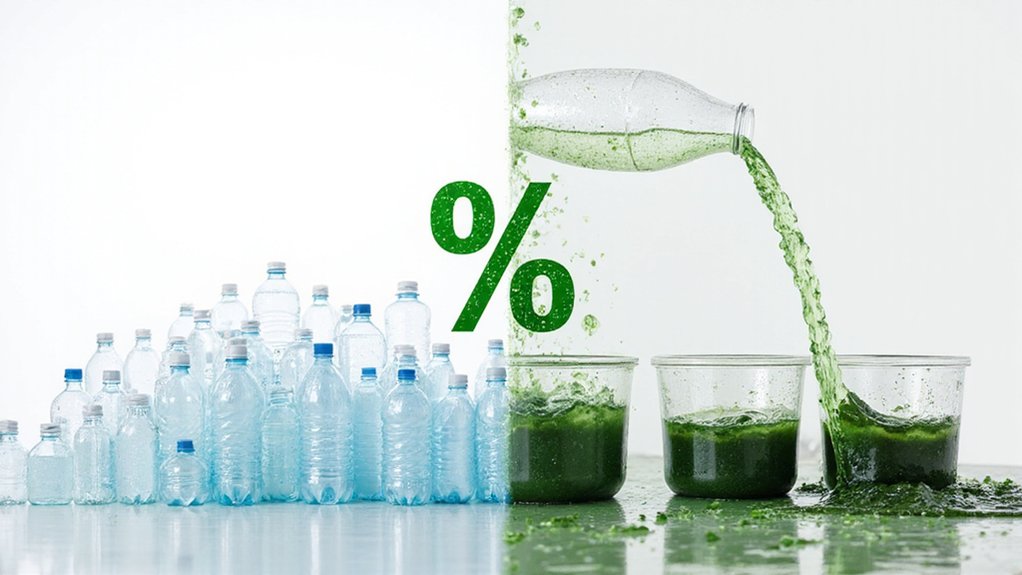Hundreds of global leaders have finally decided to tackle the plastic crisis head-on. At the INC-5.2 conference, more than 170 countries are scrambling to finalize a legally binding treaty on plastic pollution. About time. The planet is drowning in plastic waste, with projections showing 1.7 billion metric tons by 2060. That’s a $281 trillion mess waiting to happen.
Rwanda and Norway aren’t waiting around. They launched the High Ambition Coalition to End Plastic Pollution back in 2022, pushing for aggressive targets. Small island nations, meanwhile, are practically begging for action. Makes sense, since their beaches are becoming garbage dumps for the world’s plastic addiction.
The business world is surprisingly on board. Over 450 companies from 32 countries have joined the Champions of Change coalition. Even corporations are admitting we have a problem. The Business Coalition for a Global Plastics Treaty, led by the Ellen MacArthur Foundation and WWF, is pushing for actual production cuts. Corporations supporting environmental regulations? Strange times.
The numbers are staggering. Annual plastic production exceeds 460 million metric tons. Think about that. Nearly 20 million metric tons enter the environment yearly, and 75% of all plastics ever produced are now waste. Plastic pollution ranks among the top 10 global risks. Not great.
Geneva has become ground zero for these negotiations, with developing nations demanding help to manage the plastic nightmare. The Basel Convention’s 2019 amendments significantly enhanced control over plastic waste movements between countries. They need capacity-building resources and technology transfer. Fair enough, since wealthy countries shipped their plastic problems overseas for decades.
The treaty aims to cap production, phase out single-use plastics, and push circular economy solutions. Environmental justice is finally getting attention too, with negotiators acknowledging that marginalized communities suffer most from plastic pollution.
It’s a race against time. Without immediate action, the plastic tsunami will only grow. The agreement is being likened to a ‘Paris Treaty for plastics’ as it aims to address the full lifecycle of plastics. Human health, food systems, and biodiversity are already compromised. The question remains: will this treaty be robust enough to turn the tide? Or just more hot air?
References
- https://www.weforum.org/stories/2025/07/global-plastics-treaty-inc-5-2-explainer/
- https://www.genevaenvironmentnetwork.org/resources/updates/international-cooperation-on-plastic-pollution/
- https://www.greenpeace.org/international/story/77553/more-businesses-join-the-call-for-a-strong-un-plastics-treaty-support-global-change/
- https://news.un.org/en/story/2025/07/1165545
- https://www.globalplasticaction.org/gpapimpactatwef25
